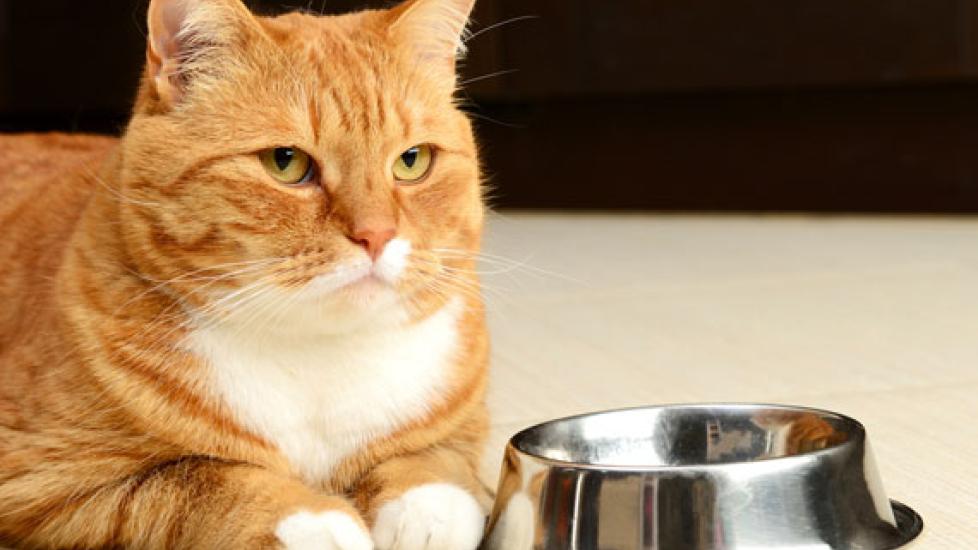Cat Refusing Food? Spitting Up? It May Be Due to Sensitive Stomach
Cats can be finicky over so many different things, but it's especially frustrating if they turn a snout to the food in front of them. Let's look at some possible reasons why this may be happening and how to help your cat.
Why Isn't My Cat Eating?
"If health problems are not an issue," says Jennifer Kvamme, DVM, "you might need to consider that your cat has acquired some bad habits." Giving your cat table scraps or treats throughout the day can cause an aversion to the "regular food," not to mention issues with weight gain. An erratic feeding routine as well as the smell, taste, and texture of the food may be other contributing factors. Put down the proper amount of food at a regular time(s) each day and be patient. Your cat should begin eating once he or she knows there won’t be any extra treats.
If that doesn't work, consult a veterinarian. They will be able to identify if there is an underlying health concern causing the inappetence, or they may be able to help you choose a diet that is more appropriate to your cat's preferences and lifestyle.
Why is My Cat Eating So Much?
An equally troubling problem is when cats eat too much. When a cat increases his or her food intake to the extent that it appears ravenous most or all of the time, the condition is referred to as polyphagia. This condition can be caused by different circumstances, and it is important to find out whether the cat’s increased food consumption is due to a psychological condition, or to a disease such as diabetes or inflammatory bowel disease (IBD).
If your cat is eating excessively, visit a veterinarian immediately. He or she will be able to rule out any underlying health causes and can help you develop an appropriate feeding regimen and diet to curb the extreme hunger.
Why is My Cat Spitting Up Food?
Some cats cannot handle a lot of variety in their diet or tolerate ingredients that make their digestive systems work a little harder than normal. "If you suspect that your cat might have a sensitive stomach,” says Jennifer Coates, DVM, "the first thing to do is to simplify his diet. Cut out all the extras — no table scraps, limit yourself to giving just one type of highly digestible treat (or even better, use his regular food as a treat), and make sure he’s not getting into anything that he shouldn’t be (e.g., the garbage)."
Next, says Dr. Coates, take a look at your cat’s food. If you think that your cat’s current diet could be playing a role in his tummy troubles, talk to your veterinarian about switching to a different cat food. "Foods made from high-quality ingredients tend to be much more digestible than lower quality products," says Dr. Coates.
However, be careful not to switch to a new cat food too abruptly. Doing so may also cause your cat to have digestive issues or develop an aversion to his or her new food.
